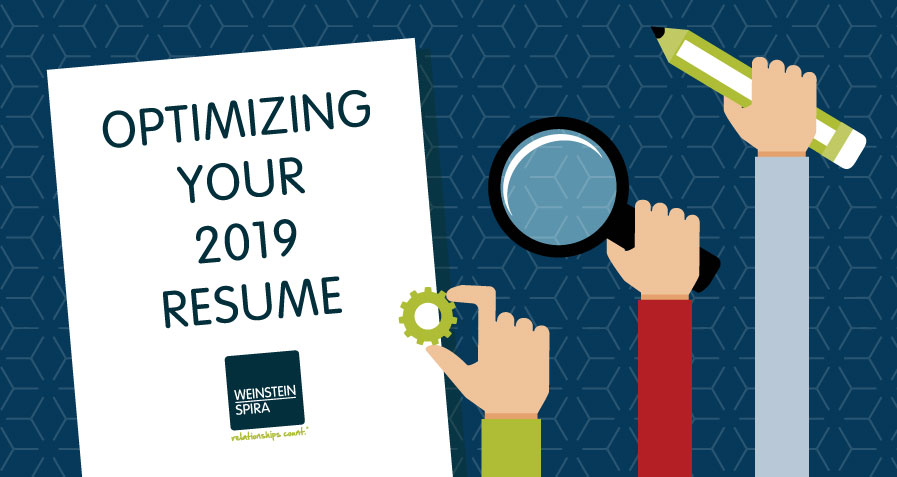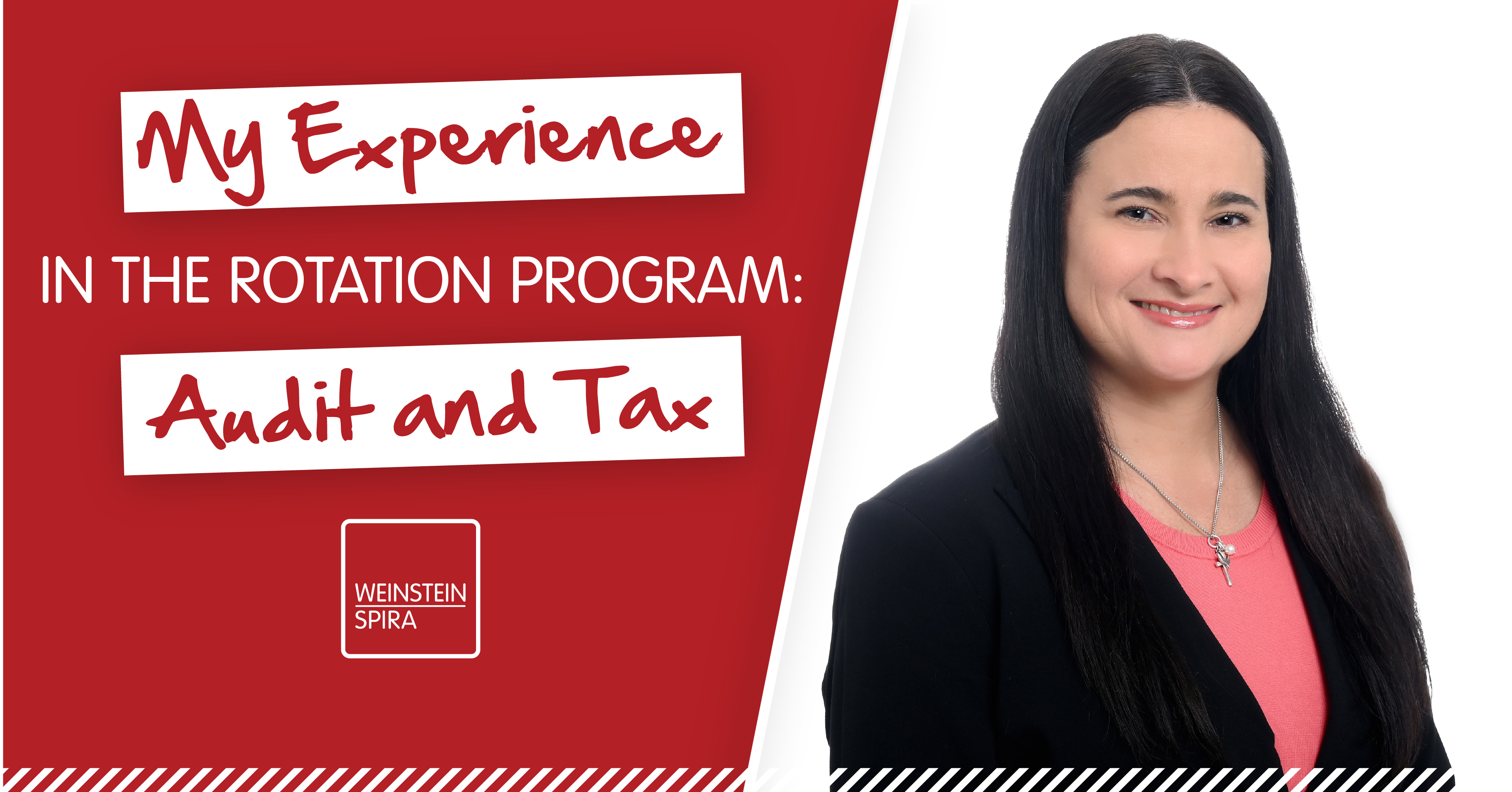Resumes are living, breathing documents that need to be kept up-to-date with your latest accomplishments while still fresh in your mind. With online profiles, like LinkedIn, it is ever more important to make changes in real time, so that recruiting search engines are more likely to find you that next great career opportunity.
Through my position at Weinstein Spira, I work with universities to recruit new grads, so I see a lot of resumes—both the good and the bad. As the resume is virtually your calling card, it may very well be the only impression you make with a hiring manager. Your resume is essential in telling your professional story to hiring managers. It is very important to put your best foot forward.
I recommend you make a New Year’s resolution for 2019 – to take charge of your resume and any related bios that you use for business presentations, speaking engagements, proposals or online. I understand it can be a hard task that many put on the back burner because it’s unnatural for us to gloat or brag about our own greatness; that’s not how most of us are culturally wired. It follows that resume writing can be a painful experience. Here are some hints to optimize the process and make it easier to get started.
Optimizing Your Resume
- Keep your resume to one page – a glimpse into your life that is a memorable, quick read
- Use a standard size and type of font, with standard margins (resume templates are useful for this)
- Remain professional in tone and conservative in appearance (an accounting resume is not the place for creativity)
- Avoid an Objective that simply states the obvious; instead, have a two to three line Summary section at the top to briefly describe your strengths and what sets you apart from other candidates
- Have a Skills and Achievements section that lists specific accounting software, like QuickBooks (but not Microsoft products…it’s a standard “given” these days); also, note any additional languages in which you are fluent
- Under Work Experience, it is not necessary to include every job you have ever had, especially those not related to the industry you are targeting
-
- For a long work history, include the three most recent jobs that show relevant, current types of skills
-
- It’s appropriate to group similar or same company jobs, and even to omit jobs if they were in an unrelated field
-
- While in school, jobs may not relate to your career, but can be used to demonstrate character and work ethic; these will drop off the resume as your career progresses
-
-
- For each Job Description, be as specific as possible and avoid being too wordy
-
- Quantify accomplishments with measurable metrics (percentage of growth, dollar amount of budget responsibility, how many people managed, etc.)
- Highlight your strongest and most transferable skills; you don’t have to list everything!
- When stating what you were responsible for, start with an action word
- For Education, students need to include overall GPA, as well as Accounting GPA (once you have graduated, this no longer belongs on your resume); students should also include expected graduation date and CPA eligibility date
- At the end of your resume (under Miscellaneous or Extra-Curricular Activities), it’s good to list groups and things you are involved in, either in the community or on campus; however, it’s not wise to include political or religious affiliations, as that could come across negatively to an employer
-
- Include hobbies and interests, as well. This lets the reader get an insight into who you are as a person.
-
- If your resume is packed, don’t skimp on the other sections to include a Miscellaneous section
-
- Do not include a photo of yourself with your resume—but make sure you have a professional photo for your LinkedIn profile
Once you are happy with your resume content, use it as a basis for other profiles and bios to maintain consistency (a resume “summary” translates nicely to a LinkedIn profile “summary”). You may also want to create different resume versions for different types of jobs in different areas of accounting, using one as the master document.
And if you’re wondering about a cover letter, keep in mind that a thoughtful cover letter could set you apart from your competition. But, make sure it does not just repeat your resume; rather, use a cover letter to say something unique about how you will add value in the position you’re applying for.
In both the resume and cover letter, always use a professional email address ( may be fun to hang out with, but not a good idea for serious consideration by a recruiter).
Finally, be sure to proofread (or have someone else do so) and spell check before sending or posting your resume. I also recommend cleaning up any other online presence (Facebook, etc.) to ensure you come across as professional, portraying what you want to portray. One way to manage your online presence is to put controls in place for who can and cannot view your personal sites. You can bet that hiring managers will Google you!



